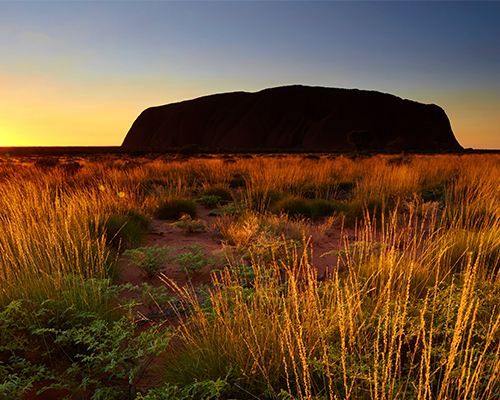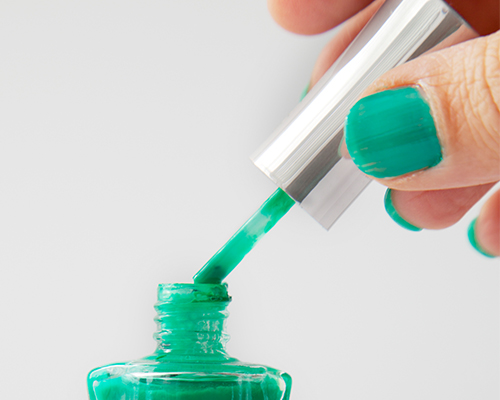When Kermit The Frog famously sang It’s Not Easy Being Green, he sure was onto something!
Making nature-loving “nips and tucks” to your business takes commitment, but if wellness is top of your wish-list, you’re probably considering, if not actively pursuing, an eco ethos already.
With 41 percent of all Australians frequently consuming organic food, and 85 percent frequently recycling, it’s likely some of your clients share the sentiment too.
Steps to more a sustainable business should be taken at a speed that suits you. Every bit of planet friendly practice counts, and it’s about the process of transition, not the pace.

1. Get The Facts Straight
Thinking of making changes to your spa or clinic? The first step is demystifying the haze. “Greenwashing” often means that the facts of being eco-friendly are as clear as mud!
Truly sustainable businessess make no negative impact on the local or global environment.
Green skincare products and cosmetics are non-toxic to humans and the environment. They don’t contain harmful chemicals such as parabens, synthetics fragrances, dyes and sulfates. Surprisingly, they aren’t always 100% percent natural, as not all chemicals are toxic.
When it comes to cosmetics, the words ‘natural’ and ‘organic’ aren’t interchangeable. A natural substance is derived from a plant, mineral or animal source without having undergone a synthetic process. Organic certification, on the other hand, refers to farming methods that are defined and regulated to promote ecological harmony. While ‘green’ cosmetics don’t have to be organic, it’s a definite bonus.
For products to classify as ‘green’ being Cruelty Free is essential. They’re non-toxic to the environment as they’re not tested, nor manufactured by methods that experiment on or kill animals.
Consider your client base. Are there a significant amount of vegans? Certified vegan cosmetics are cruelty free, and contain no animal byproducts, but not all organic or natural products are vegan, so check for non-vegan ingredients such as beeswax, hyaluronic acid, and lanolin.
What about coealliacs? To avoid allergic reactions, gluten-free cosmetics are a must.

2. Look For Seals
A facetious warning about our impact on endangered species (like the cutie above) could be inserted here, but we’re not here to lecture. Rather, we suggest adopting green practices in ways you can sustain.
Contemplating ‘greening out’ or ‘greening in’ your retail stock to suit your client needs? Then it’s time to look for seals!
Green beauty advocate Paige Padgett explains: “Simply because a product says it’s organic, it doesn’t mean it is. It may have some organic ingredients, but it doesn’t mean the entire product is. Seals on packaging are very important, because they show that a product has undergone a third party review process.”
Seals maintain specific standards and specific criteria for each certification. If you’re looking to stock vegan products, for example, then ignore buzzwords and search for proper certification from a reputable organisation like the UK Vegan Society.
Looking at stocking Australian 100% organic makeup? Make sure it’s Australian Organic Certified and has the seal on its packaging.
To guarantee they are cruelty free, skincare and cosmetics companies must have the Leaping Bunny, the Peta Cruelty Free, or the official Choose Cruelty Free – Not Tested Animals logo defined in their marketing collateral.

3. Explore Green Makeup
If your skincare stock is already sorted, you could consider leaping into the ‘green zone’ by stocking an eco-friendly makeup range.
There are plenty of options to suit the specific requirements of any spa, complete with certification seals, and rave reviews. Makeup artist Page Padgett testifies: “Green products do work. Natural ingredients have become highly sophisticated and colours are more vibrant with the use of flowers.
Does eco-makeup lack the chic factor? With celebrities like Miranda Kerr and Giselle Bundchen as advocates, and packaging prettier than ever, these days green is arguably the most glamorous option!
Synergie – This organic, cruelty free, 100% Australian makeup and skincare range, boasts stunning packaging. Formulated by biological scientist and cosmetic chemist, Terri Vinson, the science behind the brand is palpable.
Inika – When it comes to certifications, Australian makeup brand, Inika, wins. All products are cruelty free, 100% organic, and vegan. For spa owners hoping to make a serious step into ‘greener fields’, stocking Inika would be your flying leap!
Jane Iredale – One of the first established green makeup brands, it boasts an incredibly broad range of products and colours. Trustworthy to the core, it covets cruelty free seals, and is committed to supporting environmental organisations like Greenpeace.

4. Localise
“Think global, act local” is a well known way consumers can reduce their carbon footprint, and it also rings true for businesses. Choosing local suppliers benefits the community and the environment.
You could go one step further and stock a product made with native Australian ingredients. Local indigenous treatments can customise the spa experience and open up an opportunity for storytelling!
Rather than ‘greenifying’ your entire retail offering, why not add a body care collection made with indigenous botanicals to support your existing stock?
The Green Foot Mama range of organic multi-use balms is made by Byron Bay mother, Olivia Gynell using native botanicals. She hit breaking point when her children’s allergic reactions began affecting their sleep: “I was so desperate to find an answer, I pulled out some ingredients in my kitchen, that I’d researched, and started experimenting–thankfully I was a wholefoods chef working in alternative health.”
Green Foot Mama grew organically, too. Olivia says: “I started handing out my creations to other mums in groups, then all of a sudden I had 300-400 people contacting me to make more.”

5. Get Green Thumbs
If your establishment has a garden, why not investigate ways of making it as eco-friendly as possible? Your little patch of green has the potential to reduce waste, slow climate change, and cut energy use!
Take a leaf from Accor Hotel’s international sustainable gardening program which reduces the business’ overall food waste by 30%. Nick Hilton, the hotel group’s General Manger of Risk, Safety and Environment says: “Some of our hotels will reuse organic waste from the kitchens to improve the overall soil quality in their gardens.”
“Every hotel is different but some of our gardens have a vast array of seasonal fruit, vegetable produce, composting systems, worm farms, laying hens and pigs that grow up happily eating waste from the kitchen.”
Nicks’ wisdom for smaller businesses: “Create a vegetable garden (or another garden that is not produce related)! Passionate employees can help make it a huge success–I recommend discussing garden concepts and ideas with employees, to determine common goals and visions. Consider business needs, and safety, then identify the resources to implement and maintain!”

6. And Green Fingers …
Forget nail art – Another major trend in talon territory is health focused! And these cutting-edge eco-formulations lend themselves to the most creative nail artists, so you can have peace of mind, (and paint with it too)!
Offering a “green” pedicure and stocking a range of environmentally friendly nail products is a viable investment, especially considering the reduced carbon footprint that comes with it.
There are a queue of questionable chemicals found in common nail polish brands that could be seriously toxic.
Formaldehyde: A known carcinogen masquerading as a nail hardener.
Dibutyl Phthalate (DBP) : Prevents nail polish chipping, but could be chipping away at your reproductive system.
Toluene: Smooths the nail surface but has been linked to birth defects.
Sold on green nails? The juicy-hued made Jessica range covets the coolest (and hottest) colours. All products are also free of these toxins and their sneaky derivatives!
Scout cosmetics have an excellent non-toxic nail range. The brand is soon to release another collection suitable for everyone, including oncology patients.

7. Stock One Superhero!
Paige Padgett’s number one piece of advice for environmentally sustainable business? Don’t feel too overwhelmed: start slowly.
She’s right. Why not start with stocking one eco-product. The hero product in a range, perhaps?
Let’s say you’ve discovered a number of your clients are vegan. You’d love to acknowledge them, but you’re happy with your non vegan stock as is. Imagine your clinic (exactly the same) but with a small stand featuring one vegan product, such as sunscreen!
The Ultraceuticals collection is entirely cruelty free and offers physical sun care options, like the Sun Active SPF+ Mineral Face and Body lotion. You could trial it for selling power and also talking power—start a conversation with your clients and find out their thoughts (and tips) on a ‘green’ outlook.
Director of Phyt’s Activ Bio Cosmetic Catherine Masson says that the water soluble cleansing milk is the bestseller in their range. “It’s easy for spas to retail, because customers always repurchase.” All products in the Phyt’s range are certified organic, so stocking one bestseller like the cleanser, could be a gentle stepping stone to trying others…

8. Just Eat It!
Do you believe you are what you eat? The industry does, with an increasing number of spas peddling vitamins and supplements as part of their wellness prescription!
Hungry to start doing this too? Consider stocking organic probiotics. The Beauty Chef range gets to the guts of good health, working to rebalance the digestive system. The entire range is also 100% organically certified, so from an eco-outlook, these are an excellent choice.
Expanding your retail to include supplements is the perfect opportunity to exercise your eco-prowess, so be sure to choose a brand that’s in line with your ethos. Is the packaging sustainable? Are all ingredients organic? Are they Fair Trade?
Every product in The Beauty Chef range (including skincare) is 100 percent edible – made with fermented food. “A lot of the probiotics on the market are made in a lab,” Carla says. “So although the culture is food-based, they’re not actually a food-based product.”




